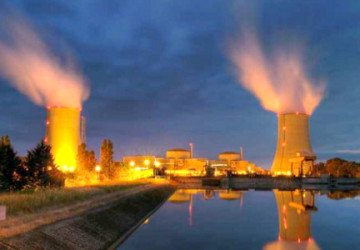How Small Reactor Fires Could Result in U.S. Nuclear Disasters Worse Than Fukushima

No matter the size, a nuclear reactor pool fire is dangerous enough to change millions of lives forever.
The Nuclear Information Resource and Service and dozens of other organizations on Tuesday uncovered an unpublished study by the Nuclear Regulatory Commission (NRC) that suggests that even a small nuclear reactor pool fire could render up to 9,400 square miles uninhabitable, displacing more than 4 million Americans.
The study examined spent fuel storage at the Peach Bottom reactor in Pennsylvania and determined that releasing a small fraction of the pool into the environment could result in a disaster worse than the one in Fukushima, Japan.
As a result, 34 environmental organizations filed a petition asking the NRC to hold off on issuing any more reactor licensing. According to petition, the NRC has never before acknowledged such dire pool fire risks while deciding on reactor licenses. The petition also seeks to debunk old NRC conclusions that the impacts of spent fuel storage during reactor operation are insignificant.
“If a pool fire accident occurs such as was studied in the Peach Bottom case study, the resulting widespread contamination and displacement of people could have enormous socioeconomic impacts, matching or exceeding the devastating effects of the Fukushima accident on Japanese society,” said Diane Curran, an attorney with Harmon, Curran, Spielberg & Eisenberg, L.L.P. who jointly filed the petition with Mindy Goldstein, director of the Turner Environmental Law Clinic at Emory University.
Other filing organizations include the Nuclear Energy Information Service, Citizens Allied for Safe Energy, Physicians for Social Responsibility and No Nukes Pennsylvania.
The NRC’s study also said that spent reactor fuel could be transferred out of high-density storage fuels—where the fire risk is the greatest—in a cost-effective manner.
The groups challenge the NRC to protect the environment along with public health and safety. That includes ecological health and socioeconomic well-being, the groups say.
Visit EcoWatch’s NUCLEAR page for more related news on this topic.

